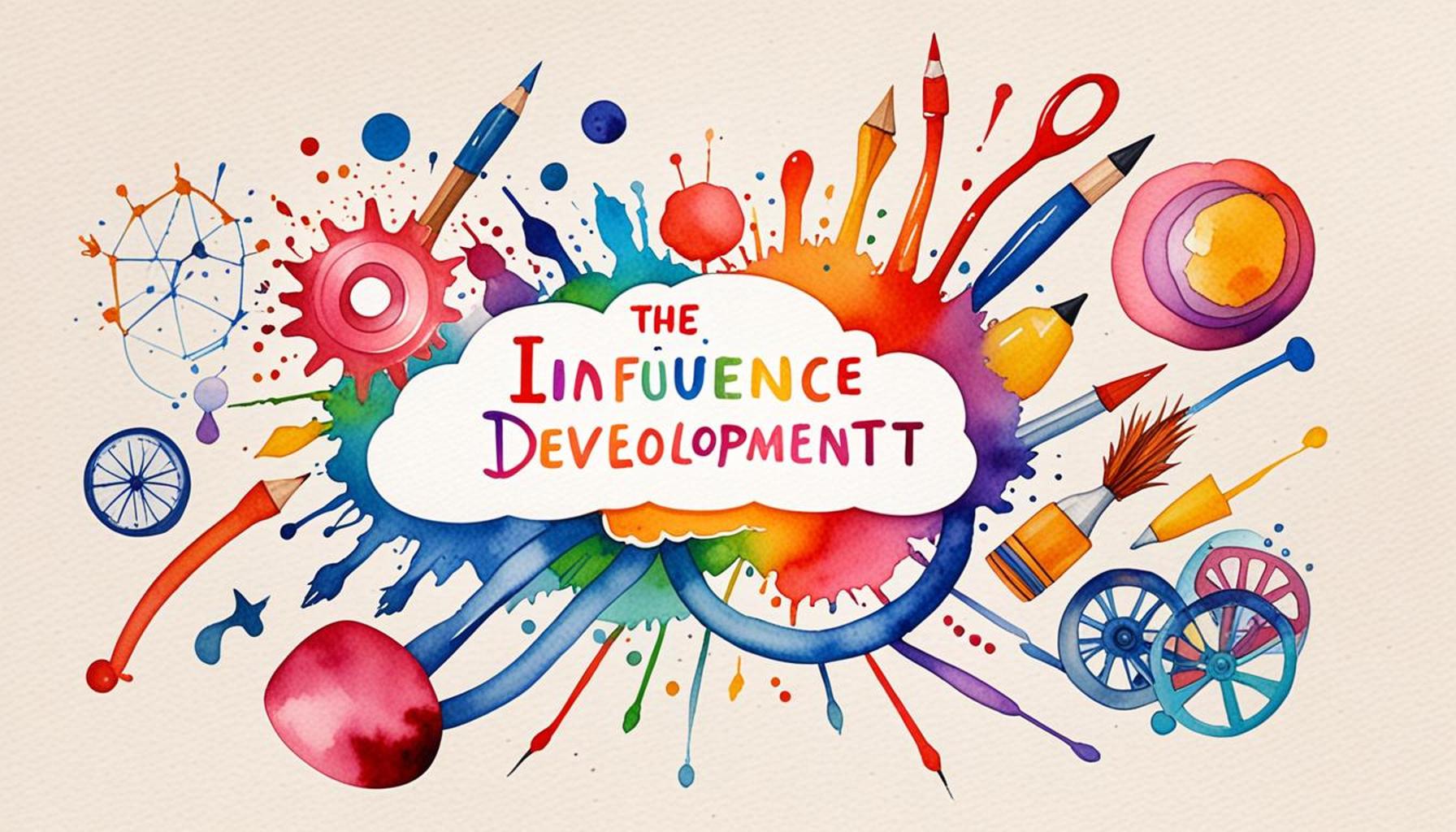How SMART Goals Fuel Growth Mindset A Crucial Strategy

Unlocking Success with SMART Goals
In an ever-evolving world where the bar for personal and professional success continually rises, finding clear pathways can sometimes feel daunting. However, the concept of SMART goals offers a robust, systematic approach to achieving these elusive outcomes. By setting objectives that are Specific, Measurable, Achievable, Relevant, and Time-bound, individuals can significantly enhance their focus on their goals, turning ambitions into actionable plans.
The Growth Mindset Connection
At the heart of this framework lies the promotion of a growth mindset, a psychological approach that encourages belief in development through dedication and hard work. This mindset thrives on resilience and the ability to embrace challenges as opportunities for learning and personal growth rather than obstacles. By deliberately setting SMART goals, individuals are more likely to foster the determination needed to overcome setbacks and pursue continuous improvement.
Synergy Between SMART Goals and Growth Mindset
The synergy between SMART goals and a growth mindset is not just theoretical—it is practical and transformative. They work together to create an environment where tangible targets become motivational fuels, propelling individuals forward with purpose and momentum. Consider the process as a cycle: SMART goals provide clarity and direction, while a growth mindset ensures that each step, regardless of its outcome, serves as a foundation for learning and advancement.
- Focus and Clarity: By specifying goals precisely, individuals eliminate ambiguity, converting vague desires into clear, actionable objectives.
- Measurement of Progress: Concrete criteria for tracking progress reinforce a growth mindset, as individuals can see visible evidence of improvement.
- Achievability: Setting realistic goals prevents discouragement, fueling perseverance while allowing for gradual skill enhancement.
- Relevance: Aligning goals with personal and professional values ensures sustained interest and engagement.
- Time-bound Structure: Urgency created by deadlines encourages consistent effort and timely achievement.
Understanding the interplay between SMART goals and the growth mindset can transform aspirations into real-world achievements. This structured approach not only guides individuals on their journey toward success but also enriches their personal development, inviting them to explore new horizons with confidence and curiosity.
YOU MAY ALSO LIKE: Read this other article

Top 5: The Importance of Setting SMART Goals to Cultivate a Growth Mindset
In today’s rapidly evolving world, the ability to cultivate a growth mindset has become increasingly vital. Popularized by psychologist Carol Dweck, the concept of a growth mindset revolves around the belief that abilities can be developed through dedication and sustained effort. To this end, setting SMART goals—Specific, Measurable, Achievable, Relevant, and Time-bound—can be a strategic approach to fostering this mindset. This article delves into the top five reasons why the discipline of defining SMART goals is indispensable for nurturing a growth mindset.
5. Clarity in Objectives
One of the primary advantages of SMART goals is the clarity in objectives they provide. Often, the journey to improvement is hampered by vague or overly broad goals, which can lead to frustration and misdirection. By focusing on the Specific aspect, SMART goals eliminate ambiguity and set a clear path forward.
Consider, for example, the difference between a nebulous goal and a specific one. Instead of stating “I want to get fit,” a SMART goal might state, “I will run 5 kilometers, three times a week, for the next three months.” This clear objective paves the way for actionable steps and minimizes the risk of wasting time and resources on undefined objectives. Clarity acts as a guiding beacon, helping individuals efficiently channel their energy and efforts.
4. Motivational Boost
The motivational boost provided by SMART goals cannot be underestimated. When goals are Measurable, individuals have the ability to track their progress, which creates a sense of accomplishment and drives further effort. This incremental success is a powerful motivator and is central to building a growth mindset.
Imagine a writer who sets a goal to complete a novel. By breaking it down into smaller, measurable targets—like writing 1,000 words each day—the writer can celebrate the completion of each milestone. These smaller victories build confidence and keep the writing process engaging, ensuring persistent momentum towards the ultimate goal. This ongoing motivation reinforces the belief that skills and outcomes can be enhanced through sustained effort, a core tenet of growth mindset.
3. Manageable Challenge
SMART goals are adept at providing a manageable challenge. The concept of being Achievable ensures that the goals set are within reach, yet require a stretch of abilities. This delicate balance encourages individuals to challenge themselves without overwhelming them.
For example, an artist wanting to improve their painting skills might set a goal to complete a new art piece every two weeks rather than a vague ambition of “becoming a better artist.” By defining what “better” means in a concrete and achievable way, the artist can focus on improving specific techniques with each painting. By tackling challenges incrementally, the individual builds not only skills but also resilience, essential components of a growth mindset.
2. Alignment with Personal Values
Setting goals that offer an alignment with personal values is a crucial motivator and an often-overlooked element of effective goal setting. The Relevant criterion of SMART goals ensures this alignment, which can significantly deepen commitment and drive.
When goals resonate with personal values, individuals are more likely to invest the necessary time and energy. For instance, someone passionate about environmental conservation might set a SMART goal such as, “I will volunteer with local clean-up operations every month this year.” The alignment with personal values ensures that the pursuit of the goal is both meaningful and fulfilling, promoting sustained engagement and the willingness to overcome obstacles.
1. Enhanced Learning and Adaptability
Arguably the most significant advantage of SMART goals is the enhanced learning and adaptability they promote. By being Time-bound, these goals necessitate regular reflection and adaptation, which are central to fostering a growth mindset.
Evaluating progress towards a goal allows individuals to identify barriers and brainstorm creative solutions. For example, a business professional aiming to learn a new market strategy might set a goal of mastering a particular technique in six months. By regularly reflecting on this progress, they can adapt methods, seek additional resources, or adjust timelines as needed.
This process of reflection and adjustment is where true growth occurs. It encourages individuals to learn not only from successes but from failures and setbacks as well. Such experiences build adaptability, resilience, and a positive attitude towards learning—core components of a growth mindset.
In summary, setting SMART goals is instrumental in cultivating a growth mindset. From providing clarity in objectives to enhancing learning and adaptability, SMART goals offer a structured yet flexible framework for personal and professional development. They encourage individuals to embrace challenges, align with personal values, and stay motivated, all while developing their abilities through persistence and dedication.
| Category | Description |
|---|---|
| Clarity and Focus | Setting SMART goals fosters a clear roadmap that enhances focus on priorities, effectively steering efforts towards achieving defined objectives. |
| Accountability | When goals are specific and measurable, individuals can better track their progress and hold themselves accountable for the outcomes. |
| Motivation and Engagement | Achieving incremental goals reinforces motivation by providing a sense of achievement, keeping individuals engaged in their personal or professional development. |
| Flexibility and Adaptability | SMART goals can be revisited and revised, encouraging a dynamic approach to target setting that aligns with evolving circumstances and personal growth journeys. |
The importance of defining SMART goals lies not just in the clarity they provide but also in the structured support system they create for individuals striving for a growth mindset. Setting clear benchmarks, akin to measurable milestones, offers a substantial boost in motivation, enabling individuals to realize their potential over time. For instance, while pursuing a career advancement, having specific learning outcomes ensures that one’s efforts are aligned with the ultimate goal. Additionally, creating an accountability mechanism around these goals significantly enhances the likelihood of success. When individuals establish their intentions clearly, the desire to meet those expectations becomes a powerful motivator, leading to sustained efforts toward personal and professional development.Moreover, the iterative nature of SMART goals means that as one progresses, the possibility of reassessing and adjusting objectives remains. This adaptability encourages resilience and flexibility, key traits of a successful growth mindset. For example, if a particular strategy does not yield the desired results, revisiting the goals allows individuals to pivot toward more effective solutions without losing sight of the bigger picture.Overall, the attributes nurtured through SMART goal setting—clarity, accountability, motivation, and adaptability—stand foundational for developing a growth-oriented mindset. By embracing these principles, individuals can unlock their full potential and navigate challenges with confidence and purpose.
ADDITIONAL INSIGHTS: Expand your understanding here
Frequently Asked Questions about SMART Goals and Growth Mindset
What are SMART goals and why are they effective?
SMART goals stand for Specific, Measurable, Achievable, Relevant, and Time-bound. These criteria help in crafting clear and attainable objectives that lead to better outcomes. SMART goals are effective because they provide a structured approach to goal setting, encouraging individuals to think critically about what they want to achieve and how they will measure success. This method also forces a reflection on the importance and feasibility within a given timeframe, enhancing motivation and focus.
How do SMART goals contribute to a growth mindset?
By setting SMART goals, individuals are nudged towards a growth mindset. A growth mindset is the belief that one’s abilities and intelligence can be developed through dedication and hard work. With each goal defined using the SMART criteria, there’s a clearer path to follow, which fosters a commitment to personal development. As these structured goals are accomplished, confidence builds, reinforcing the belief in the potential for growth.
Can SMART goals be applied in both personal and professional settings?
Absolutely, SMART goals can be applied to various aspects of life, whether personal or professional. For instance, in a professional setting, setting SMART goals can enhance productivity and clarity in team projects, while personally, they can help in areas such as health, learning new skills, or financial management. The key is to ensure that each goal aligns with individual aspirations and available resources, making the approach both versatile and powerful.
Are there any common pitfalls to avoid when setting SMART goals?
While SMART goals are highly effective, there are a few common pitfalls. One is setting goals that aren’t truly meaningful or aligned with personal values, leading to disengagement. Another is being overly ambitious or vague, setting goals that are either unrealistic or too broad. It’s also crucial to regularly review and adjust goals as circumstances change, ensuring they remain relevant and feasible. Avoiding these pitfalls helps maintain the motivation and direction needed to achieve success.
LEARN MORE: This related article may interest you
Conclusion: The Role of SMART Goals in Fostering a Growth Mindset
In an ever-evolving world, the capacity for growth and adaptation is crucial. This is where the concept of a growth mindset comes into play, and defining SMART goals can serve as an essential tool in this transformative process. By setting goals that are Specific, Measurable, Achievable, Relevant, and Time-bound, individuals are better positioned to navigate challenges and pursue opportunities for development.
One of the main takeaways is that SMART goals offer clarity and focus. They empower individuals to break down daunting objectives into manageable tasks, enhancing motivation and maintaining momentum over time. Additionally, such clearly defined goals allow for monitoring progress, which is indispensable for fostering resilience and sustained effort. When progress is visible, it cultivates a sense of achievement and encourages a continuous cycle of improvement, which is the essence of a growth mindset.
Moreover, the relevance of setting SMART goals extends beyond just personal development. In professional settings, teams that utilize this framework can foster collaborative environments where innovation is encouraged and setbacks are seen as learning opportunities. This atmosphere not only inspires creativity but also aligns with the notion that skills and intelligence can be developed through dedication and hard work.
In conclusion, integrating SMART goals into one’s life can significantly bolster a growth mindset. It provides a structured yet flexible approach to personal and professional development, encouraging individuals to embrace challenges as avenues for growth rather than insurmountable obstacles. As readers reflect on these insights, they are urged to explore the dynamic interplay between goal-setting and mindset, uncovering more pathways to expand their potential and horizons.


